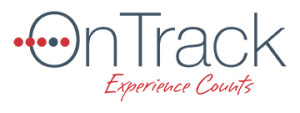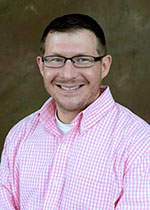Prior Learning Assessment – Brief overview of an extensive learning advantage
What is PLA?
 The Prior Learning Assessment (PLA) is a systematic approach of comparing and evaluating formal and informal learning accumulated through various situations and activities carried on at work, in school and throughout life against the requirements of an academic program of studies. Its history and beginnings go all the way back to post-World War II era when veterans requested that their formal and informal learning achieved during military service be recognized with academic credit normally reserved for formal learning (Shelton and Armistead, 1989).
The Prior Learning Assessment (PLA) is a systematic approach of comparing and evaluating formal and informal learning accumulated through various situations and activities carried on at work, in school and throughout life against the requirements of an academic program of studies. Its history and beginnings go all the way back to post-World War II era when veterans requested that their formal and informal learning achieved during military service be recognized with academic credit normally reserved for formal learning (Shelton and Armistead, 1989).
How does it work?
There are many methods of substantiating and evaluating prior learning, from documentation via portfolios, transcripts, certificates, and licenses to demonstration through standard exams, oral interviews, product samples, and performance tests (Knapp and Sharon, 1975).
The University of Louisville has incorporated the PLA element into its Bachelor of Science in Organizational Leadership and Learning (BSOLL) online program, and works with each student individually to identify the best evaluation method for granting college credit.
At UofL, PLA also aligns with the concept that learning is the product of various activities and situations and that learning is continuous. Even when your life gets in the way of your educational goals or you are forced by life circumstances to put your education on hold, you continue to learn and accumulate knowledge and skills that can translate into college credits.
As you begin the BSOLL online program, in the first major course, ELFH 300 – Prior Learning Assessment, you can document and evaluate learning from work experiences, existing course credits and associate degrees, technical and specialized training to receive credit for the specialization.
During this 3 credit hour course, you may earn up to 48 credit hours in the specialization component at no cost (equivalent of 16 courses tuition-free!). That could amount to more than a third of the entire degree credit requirement, which could get you even closer to reaching your end-goal. After completing the PLA course, you can proceed to the remaining courses in the designated track.
“Our first priority is our students’ success and ensuring that they capitalize on all the time spent learning throughout their career. The BS OLL PLA Class gives our students the opportunity to reflect and show evidence of their workplace knowledge from training, development, continuing education, and overall work experience. Each student has the opportunity to share the value of their work-related experiences, and infuse these experiences in the PLA Portfolio.” says Dr. Terri Rowland, Bachelor of Science in Organizational Leadership and Learning (B.S. OLL) Program Director and Clinical Assistant Professor.
She added “The culmination and successful completion of a PLA Portfolio can lead to earning up to 48 hours of college credit and we believe that this makes it cost-effective and is a great opportunity for our BS OLL students who are working full-time, serving our country or raising a family!”
While the definition and application of PLA is somewhat fluent and may vary from one field to another, most experts agree that PLA is based on five core norms:
- learning is continuous and occurs across the lifespan
- learning can happen in formal, informal, and non‐formal contexts
- learning can be equally valuable and significant whether gained from a formal or informal context
- formal learning outcomes can serve as a measure for all other types of learning
- if learning from various contexts is equivalent to format learning, it should be recognized and credited as such.
Because all learning is considered valuable, PLA reflects learning from sources such as family, school, work, community, volunteer, hobby, military, and even travel. Most often, the university prior learning credit is given for learning from on-the- job training and development, continuing educational units, or unaccredited college courses, as well as CLEP tests. Credit is not awarded for work experience per se, but for the learning and transferable knowledge that occurred as the result of work or life experiences which are comparable to college-level courses. These credits may not be used for Organizational Leadership and Learning core courses or general education requirements, but are used to develop the required 48-hour specialty area.
The Bachelor of Science in Organizational Leadership and Learning is specifically designed for experienced professionals who have an associate degree or equivalent college hours and extensive work history but they lack the college credentials to secure their current job of pursue a leadership position in the future. If you are one of those professionals, give our program a try and move closer to completing your bachelor’s degree in a convenient, efficient and affordable manner.
Visit our BSOLL online program page to learn more. To review application requirements and deadlines for this program visit Apply Now page.
References
Knapp, J. and Sharon, A. (1975), A Compendium of Assessment Techniques, Cooperative Assessment of Experiential Learning, Princeton, NJ.
Shelton, S.E. and Armistead, L.P. (1989), “The practice of awarding credit for prior learning in the community college”, Community/Junior College Quarterly, Vol. 13 No. 1, pp. 23‐31.




